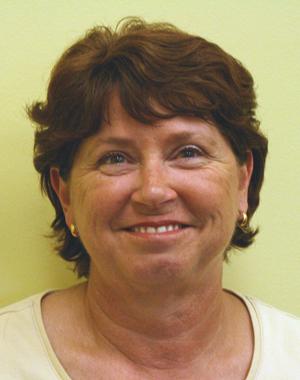
By Barb Arland-Fye
An increasing number of Catholics desire to broaden their understanding of the Catholic Church or pursue professional ministry.
More than 18,400 lay ecclesial ministry candidates were enrolled in degree and certificate programs in 2010-11, according to the Center for Applied Research in the Apostolate (CARA). Of that total, 68 percent were working toward a certificate in ministry and 32 percent were working toward a graduate degree in ministry. The total number of enrollees represented a 3 percent increase over the 17,935 candidates reported in 2009-2010.
In the Davenport Diocese, lay ecclesial ministry candidates have discovered a valuable resource in the Ministry Formation Program (MFP). Its flexible structure strives to accommodate adult learners’ schedules by offering classes on site at various buildings in the diocese or in small groups in someone’s home or another setting.
Onsite classes have begun this fall, but small-group classes are still getting underway in the next few weeks, says IlaMae Hanisch, MFP coordinator for the Davenport Diocese. If you would like to participate, contact her at Hanisch@davenportdiocese.org.
MFP offers a two-basic program, with graduates earning certification as lay ecclesial ministers. For some individuals, the two-year basic MFP has served as a springboard to further education to qualify for positions as parish life administrators/pastoral associates, or in the areas of liturgy and catechetics. Those completing all three specializations are certified as pastoral associates, Hanisch said.
In this series, The Catholic Messenger profiles individuals participating in advanced MFP studies and planning to complete the five-year program. To begin, we introduce you to Margi Mountz, pastoral associate, director of religious education and adult faith formation coordinator at St. Alphonsus Parish in Mount Pleasant. She’s been married to Ted for 38 years. They have two grown daughters and three grandchildren. Margi also serves as a lector and eucharistic minister.
Margi Mountz
Q: What inspired you to pursue adult faith formation through MFP?
A: I began taking the basic MFP 1 and 2 classes because my husband was taking them in preparation for the diaconate, and I thought, “What the heck? I might as well tag along.” I admit that I didn’t really take the classes that seriously at first, but as I went to more classes and learned more, I started taking it a lot more seriously. So your word “inspired” wouldn’t have applied to me in the beginning.
Q: Why did you decide to go beyond basic MFP?
A: I didn’t always intend to go beyond the basic MFP, but in the second year I decided that I really wanted to take the liturgical specialization. As it turned out, I had to get through the catechetical specialization first.
Sometime between the catechetical specialization and the PLA (parish life administrator) specialization, I decided that I wanted to complete all five years of classes in the hope that I might one day be able to minister as a PLA. I have now finished with the PLA specialization and am registered to take the liturgical specialization in 2011-12.
Q: When do you anticipate graduation from MFP?
A: I will be completely done and will graduate in 2012.
Q: How are using what you’ve learned through MFP in your parish, life, family?
A: I am now the DRE (director of religious education) and adult faith formation coordinator at St. Alphonsus in Mount Pleasant. I have been able to use a lot of my knowledge and experiences through the MFP classes in my job here, and also as a leader of Communion services in my parish.
Q: What is the most valuable aspect of MFP for you?
A: The most valuable aspect of MFP has been the wealth of knowledge that I have gained and have been able to use in my ministry here at St. Alphonsus. It is surprising to me how many times I have been able to go back and reference something that I learned in MFP. Five years is a long time and I can’t remember everything that I have learned, but at least I now know that the information is available and where to look for it.
Q: What has been the most challenging aspect?
A: The most challenging aspect is probably getting all of the homework done in a timely manner. My goal throughout these four years (five when I am finished) is to have all homework done and turned in before the next month’s class. With a couple of exceptions, I have been able to do this, even though I have been working full-time throughout this process.








